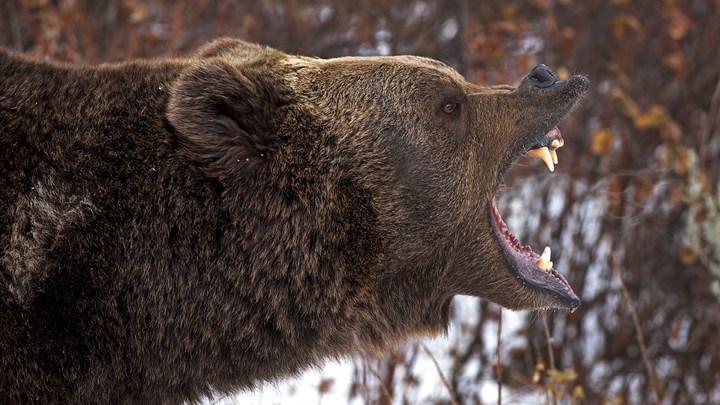
by Karen Mehall Phillips, Director of Communications, NRA Hunters’ Leadership Forum - Wednesday, October 4, 2023

We hunters remember all too well when animal rights extremists in British Columbia sidestepped wildlife science in 2017 and doubled down on an emotion-driven campaign to close grizzly bear hunting throughout the province. Legal, regulated hunting of the big bruins was banned and, as with grizzly bears in America, their populations expanded as reports of attacks on humans escalated. Now, in a positive turn of events, the B.C. Ministry of Forests is inviting the public to weigh in on the 80-page draft of its Grizzly Bear Stewardship Framework by Fri., Oct. 6, at 4 p.m. PST "to improve conservation efforts and identify knowledge gaps."
As hunter-conservationists are aware, it is not often that hunting of a species is reinstated once it has been closed, but now there is hope that public comments will facilitate reopening hunting for wildlife management purposes. So far, so good, but according to the Guide Outfitters Association of British Columbia (GOABC), the anti-hunting Grizzly Bear Foundation (GBF) is seizing the opportunity to try and make sure hunting is never reinstated. Not only is the GBF running ads in the Vancouver Sun and Province urging British Columbians to write letters condemning any hunting of grizzly bears, but it is sharing letter-writing software with anti-hunting groups to try and meet its goal of sending 10,000 letters by the Oct. 6 deadline.
Act Today!
It is imperative that hunters, guides, outfitters, wildlife biologists, farmers, ranchers and others who believe in science-based wildlife management counter GBF’s initiative and provide their own feedback on the Grizzly Bear Stewardship Framework by taking the government’s questionnaire by Oct. 6. In advocating for science-based wildlife management and for the province’s decision-makers to value wildlife and its habitat in land use decisions, GOABC is helping hunters fill out the government’s questionnaire. To read GOABC’s suggested responses, click here. To fill out the questionnaire, click here.
As explained by GOABC, the proposed framework offers guidance for decision makers and participants in initiatives related to land and resource planning “to inform local decisions and enable amendments to policy, legislation and programs related to grizzly bears.” It supports the preparation of regional grizzly bear stewardship plans and recognizes the primary threats to those plans, including: residential development, agriculture, energy production, road corridors, forestry and other resource use, human intrusion, natural events, disease, pollution and severe weather changes.
Because the framework’s online questionnaire asks for public opinion on the effectiveness of the current approach to grizzly bear management, hunters can have their voices heard before it is too late. Hunters can go on record to disagree with the plan’s goal of promoting co-existence with grizzly bears, for example, while voicing support for some of the plan’s other goals, such as providing an ecosystem-based approach for regional or local grizzly bear stewardship plans based on science and indigenous knowledge. Such plans will consider inter-species relationships and cumulative effects of industrial activities, other human activities and natural processes on grizzly bear conservation. Hunters also have the opportunity to prioritize the plan’s recommended approaches and comment on the fact that the B.C. government should work with First Nations to reopen a licensed grizzly bear hunt—per First Nations’ requests—as hunting is a key performance indicator of the health of a species and ensures grizzly bears will continue to thrive in the province.
GOABC advocates for science-based wildlife management and for the province’s decision-makers to value wildlife and its habitat in land use decisions. As GOABC guide outfitters often reside within their guide territories, they have considerable knowledge on habitat conditions, predator-prey relationships and the ecosystem in which they operate. They support sustainable use and are often the first to see changes in species’ populations. As a result, the GOABC website explains, “Our on-the-ground knowledge indicates that the grizzly bear populations are healthy and growing. We are seeing bears in greater densities in areas where we have not seen them in generations.”
Hunter-backed groups from the Wild Sheep Foundation (WSF) to the Dallas Safari Club are urging their members to take action. As the WSF alert underscores, “Wildlife matters, people matter, science matters—and your opinion matters.”
Those of us who back science-based wildlife management recognize the struggles we face with apex predator management. We need to talk with non-hunters so they understand that these struggles will go from bad to worse if we don’t make sure that management of predator and prey species alike is put in the hands of professional wildlife biologists—where it belongs—as we advocate for hunting as a vital wildlife management tool.
E-mail your comments/questions about this site to:
[email protected]
